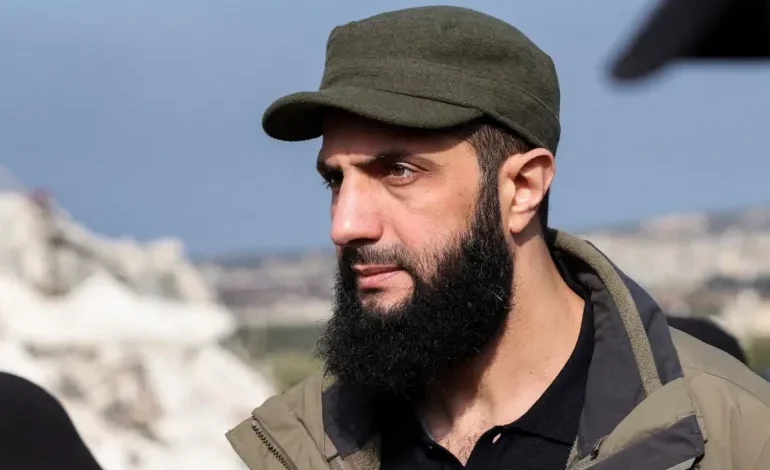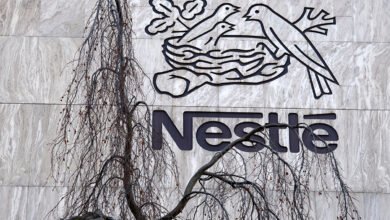
Abu Mohammed al-Julani: The Leader of HTS in Syria’s Turmoil
Abu Mohammed al-Julani has made a remarkable transformation. He went from being a designated terrorist leader to becoming the head of a government that controls much of northern Syria. His story represents one of the most dramatic shifts in modern Middle Eastern politics. The leader of HTS in Syria remains one of the most influential and controversial figures in the Syrian conflict. His rise from an Al-Qaeda affiliate to leading Hayat Tahrir al-Sham (HTS) shows how Syria’s opposition has changed drastically. Al-Julani’s leadership has altered the map of northern Syria politically and militarily. His organization now governs territory where millions of civilians live. This piece explores his path to power, military approach, governance style, and diplomatic work to gain acceptance internationally.
From Al-Qaeda to HTS: Evolution of Leadership
Abu Mohammed al-Julani’s experience as a leader started right after September 11, 2001. He found himself drawn to jihadist ideology through secretive sermons near Damascus. His militant leadership began in 2003 as he joined Al-Qaeda in Iraq under Abu Musab al-Zarqawi’s command. American forces later arrested him, leading to a five-year detention period.
Early involvement with Al-Qaeda in Iraq
Ahmed Hussein al-Sharaa, later known as al-Julani, was born in 1982 in Riyadh, Saudi Arabia. His family moved back to Syria in 1989. American forces arrested him during his early days with Al-Qaeda in Iraq. This detention prevented his advancement through the organization’s ranks.
Formation of Jabhat al-Nusra
Al-Julani made his way back to Syria in March 2011 during the uprising against President Bashar Assad’s regime. He created Jabhat al-Nusra as Syria’s Al-Qaeda branch, which was officially announced in January 2012. His leadership helped al-Nusra become one of Syria’s most powerful opposition groups. The U.S. Department of State quickly designated it as a terrorist organization.
Strategic transformation to HTS
The most important transformation in al-Julani’s path came in July 2016. He announced the rebranding of Jabhat al-Nusra to Jabhat Fateh al-Sham and declared “no affiliation to any external entity”. This change concluded in January 2017 with the formation of Hayat Tahrir al-Sham (HTS), which merged with other Syrian Islamist organizations. HTS focused on curbing both ISIS and Al-Qaeda in its territory under this new identity. The group successfully controlled most of Idlib Governorate through its civilian administration, the Syrian Salvation Government.
This transformation showed al-Julani’s changing approach from transnational jihadist ideology to a more nationalist Syrian struggle. His public statements reflected this change, including a notable interview where he wore a suit instead of traditional militant attire. He expressed opposition to civilian casualties and tried to distance his organization from its earlier extremist connections.
Military Strategy and Territorial Control
HTS has shown remarkable military capabilities through its recent territorial expansion across Syria under Abu Mohammed al-Julani’s leadership. The group captured Aleppo, Syria’s second-largest city, in just three days. This quick victory highlighted their improved tactics and operational efficiency.
Tactics in capturing key Syrian cities
HTS’s military strategy has evolved substantially. They now use advanced warfare techniques with specialized units for drones, infantry, and tanks. Their success in capturing major urban centers proves their improved coordination and effectiveness in battle. Their forces quickly moved from Aleppo to secure Hama. They now control approximately 20,000 square kilometers of territory—nearly seven times more than their previous holdings.
Coalition building with other rebel groups
Al-Julani built successful alliances with various opposition factions, including:
- Harakat Nour al-Din al-Zinki
- Liwa al-Haq
- Jaysh al-Sunna
These strategic collaborations work under a unified Military Operations Command. This structure improves their collective military effectiveness while keeping operations coordinated.
Defense and security infrastructure
HTS runs a sophisticated defense network, especially in Idlib province, where it maintains a fighting force of 12,000 to 15,000 militants. The group’s military operations focus on three strategic goals: removing Iranian-backed forces, curbing ISIS-aligned groups, and strengthening controlled territories. Their defense strategy works alongside a strong civil administration system. The Syrian Salvation Government manages everything from simple services to security operations.
Governance Model in Controlled Territories
The Syrian Salvation Government (SSG) has been the administrative foundation of Abu Mohammed al-Julani’s territories since 2017. HTS created this governing body to manage an extensive network of civil services throughout northwestern Syria, with a special focus on Idlib province.
Administrative structure under HTS
The SSG runs a detailed administrative system through ten ministries that oversee civilian life. This organization has helped Idlib become Syria’s fastest-growing region – quite a transformation for what was once the country’s poorest province. The region now boasts:
- Modern infrastructure development
- Educational facilities with a university serving 18,000 students
- Continuous electricity supply
- New commercial developments
Economic management and civil services
HTS maintains tight economic control through several mechanisms. The organization manages strategic assets like the Bab al-Hawa crossing with Turkey. Revenue flows from multiple sources such as crossings management, petroleum distribution, and financial services. The SSG takes care of education, healthcare, judiciary functions, and keeps the infrastructure running smoothly.
Treatment of religious and ethnic minorities
Al-Julani’s leadership has brought a markedly different approach toward minorities compared to earlier times. HTS has released formal statements that protect religious and ethnic minorities, especially in newly captured territories. Since 2018, Christians in Idlib can celebrate their religious holidays. However, they face some restrictions – they cannot display crosses or ring church bells. The Kurdish community has received positive attention too, with the administration declaring them “an integral part of the diverse Syrian identity”.
Human rights organizations remain skeptical about HTS’s governance model. They point to ongoing authoritarian practices and suppression of dissent. Critics say the group denies services to opposing communities and plays a role in making activists disappear.
International Relations and Diplomacy
Abu Mohammed al-Julani has stepped up his diplomatic initiatives to reshape HTS’s international image and legitimacy in recent years. The United States still offers a AED 36.72 million bounty to capture him. This reward underscores the challenges he faces while seeking international recognition.
Efforts to remove terrorist designation
Al-Julani works actively to separate HTS from its militant history, especially when you have media interactions and policy changes. He repeatedly states that HTS poses “no security threat, no economic threat” to Western societies. The organization’s success in curbing both ISIS and Al-Qaeda in its territories shows a strategic move toward mainstream legitimacy.
Relations with regional powers
HTS’s regional diplomacy prioritizes several key initiatives:
- Building dialogue with Turkey, despite its terrorist designation of the group
- Participating with Iraqi leadership to prevent militia intervention
- Providing assurances to religious minorities in controlled territories
Western engagement attempts
Al-Julani’s approach to Western engagement has changed by a lot. He now appears in Western media wearing a suit instead of traditional militant attire. He consistently argues that the terrorist designation is “unfair” and “a political label that carries no truth or credibility”. HTS uses the Syrian Salvation Government to show its “logistical and governance capacity“. The organization strives to position itself as a credible governing entity and potential partner in global counterterrorism efforts.
The organization faces major hurdles in its diplomatic efforts. The United Nations, Turkey, the United States, and the European Union still designate it as a terrorist organization. Al-Julani continues to pursue diplomatic channels while you retain control over large territories in northern Syria, despite these challenges.
Abu Mohammed al-Julani’s trip shows a remarkable change in Syria’s complex political world. His development from an Al-Qaeda affiliate to the leader of HTS shows the changing power dynamics and ideology in the region. HTS has gained control over vast territories through military strength and strategic collaborations. The Syrian Salvation Government now manages daily life for millions of civilians under its administration.
The organization’s governance model has brought stability and growth to areas under its control, especially in Idlib province, despite being controversial. Their treatment of minorities and civil services marks a clear break from their earlier hardline stance. Concerns about human rights practices still exist.
Al-Julani’s diplomatic efforts reflect his goal to remove the terrorist label and gain international acceptance. The path ahead remains difficult because Western powers and regional actors still consider HTS a terrorist organization. The group’s future role in Syria’s political world depends on how well it balances local governance with international expectations.






